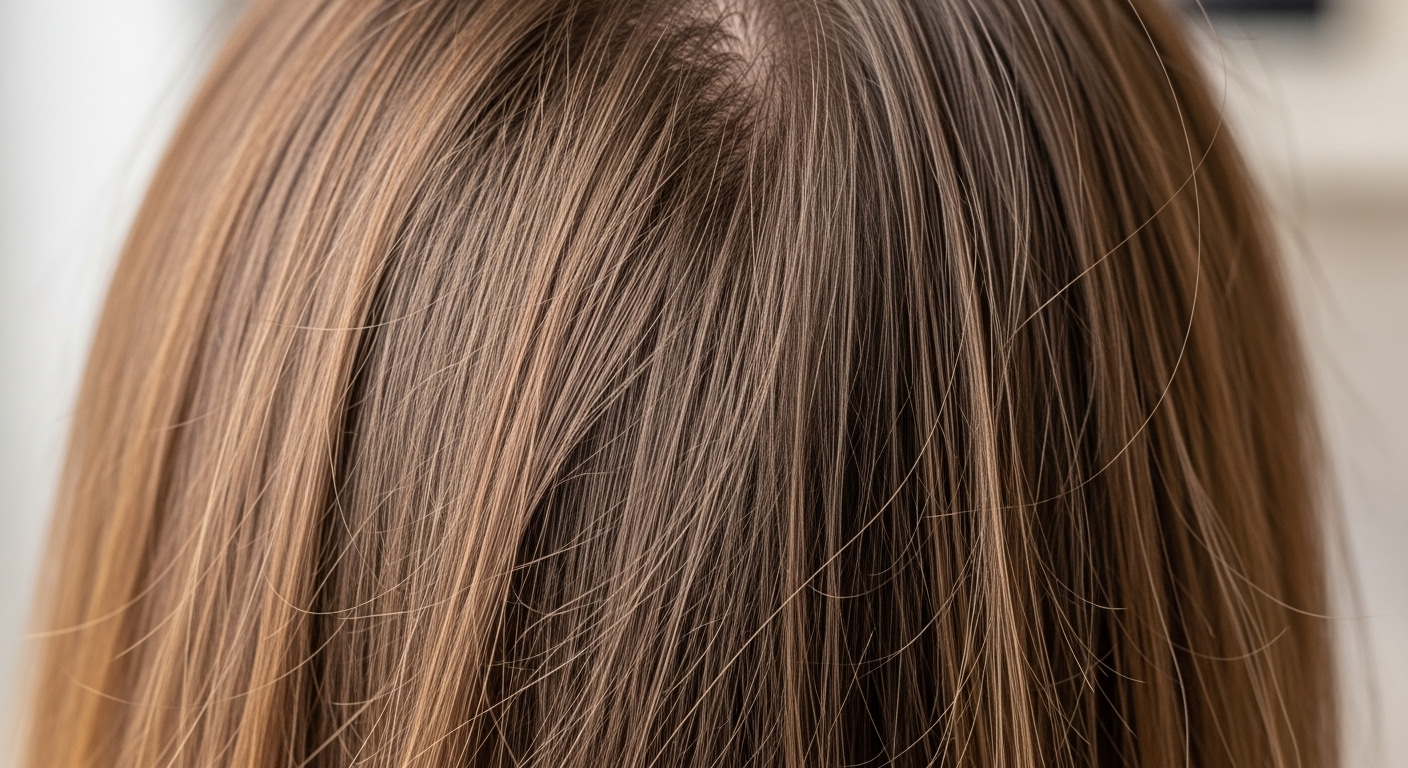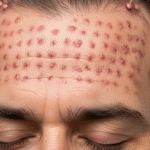If you’ve ever wondered, How Many Hairs on a Human Head? you’re not alone. It’s one of the most commonly asked questions about hair. The number of hairs on a human head varies greatly from person to person and is influenced by factors like genetics, hair color, and age. Understanding your hair’s density can help …
If you’ve ever wondered, How Many Hairs on a Human Head? you’re not alone. It’s one of the most commonly asked questions about hair. The number of hairs on a human head varies greatly from person to person and is influenced by factors like genetics, hair color, and age.
Understanding your hair’s density can help you better understand hair health, hair loss, and what you can do to maintain a full head of hair. In this article, we’ll explore the average number of hairs on a human head, how it changes over time, and what influences this number.
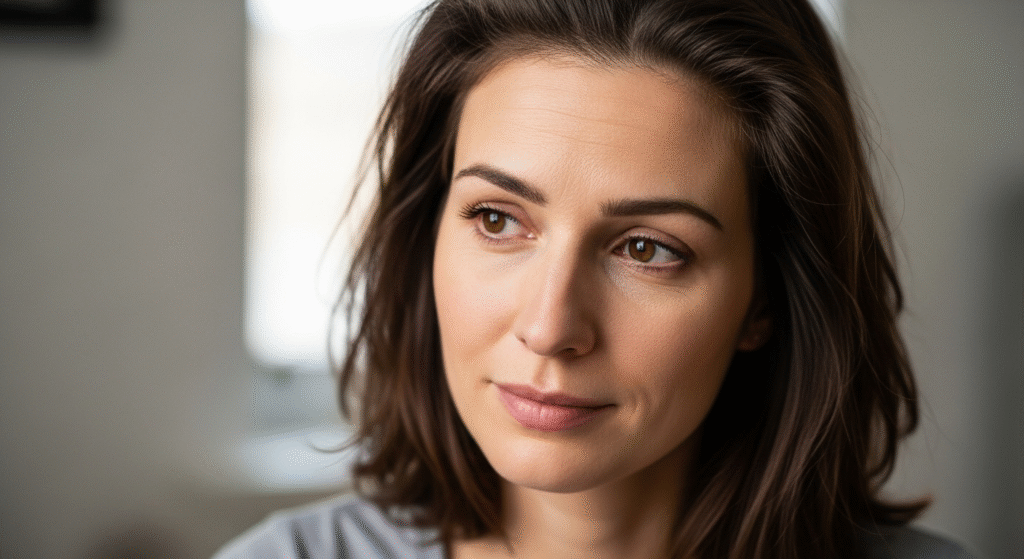
Average Number of Hairs on a Human Head
The average human scalp has approximately 100,000 to 150,000 hair follicles. However, this number can vary depending on several factors, such as hair color, genetics, and even age.
The Typical Range
- On average, blondes tend to have the most hair follicles, with an estimated 150,000 follicles.
- Brunettes generally have about 100,000 to 110,000 hair follicles.
- Redheads have the fewest, typically around 90,000 hair follicles.
How Hair Color Affects the Number of Hairs
Hair color plays a role in how many follicles you have:
- Blondes: The lighter color of blonde hair means a greater number of follicles. The lighter pigmentation allows for thinner but denser hair growth.
- Brunettes and Black Hair: People with darker hair generally have fewer follicles, but the hair tends to be thicker.
- Redheads: People with red hair typically have fewer follicles, but the individual strands are often thicker, which compensates for the lower number of hairs.
Factors That Influence Hair Count
- Genetics: A key factor in determining the total number of follicles you have. If your parents had thick hair, there’s a good chance you will too.
- Age: As you age, you may notice a reduction in hair density. This is due to hair follicles shrinking and slowing down hair production.
- Health: Poor nutrition, stress, and certain medical conditions (e.g., thyroid imbalance or alopecia) can affect hair growth and lead to thinning or loss.
How Many Hairs Fall Out Each Day?
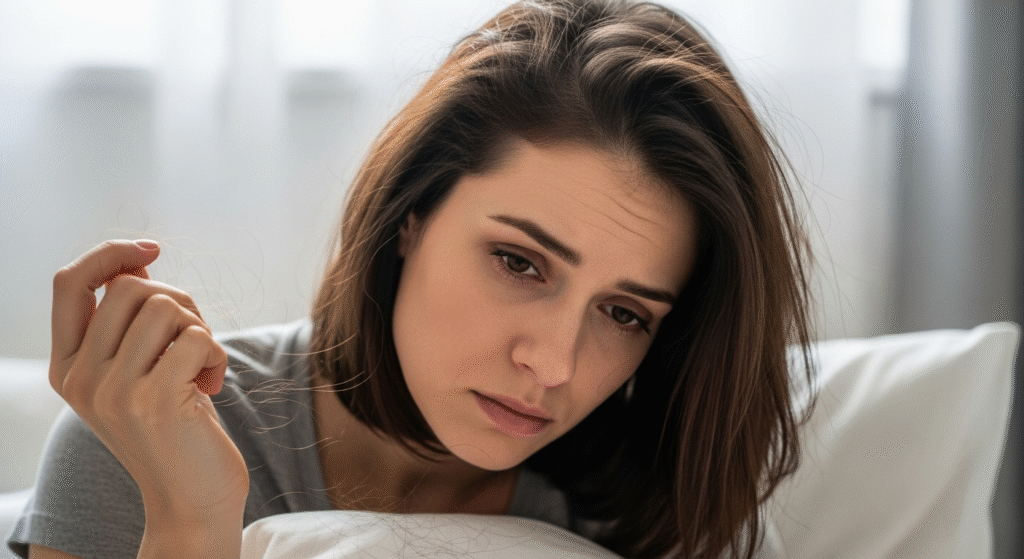
Hair shedding is a normal part of the hair growth cycle. The average person sheds about 50 to 100 hairs per day, which is completely natural.
Normal Hair Shedding
- Hair follows a natural growth cycle consisting of Anagen (growth phase), Catagen (transitional phase), and Telogen (resting phase). During the Telogen phase, hair sheds naturally as new hair begins to grow.
How to Recognize Abnormal Hair Loss
- Losing more than 100 hairs per day can be a sign of excessive shedding, which could be due to stress, dietary changes, or health conditions.
- If you notice a significant increase in hair fall or bald spots, it might be time to consult a dermatologist.
What Happens When Hair Loss Becomes Noticeable?
- Excessive hair shedding or thinning may lead to pattern baldness. Male and female pattern baldness (androgenetic alopecia) is genetic and can result in noticeable thinning or bald spots, especially around the crown or temples.
What Affects Hair Growth and Density?
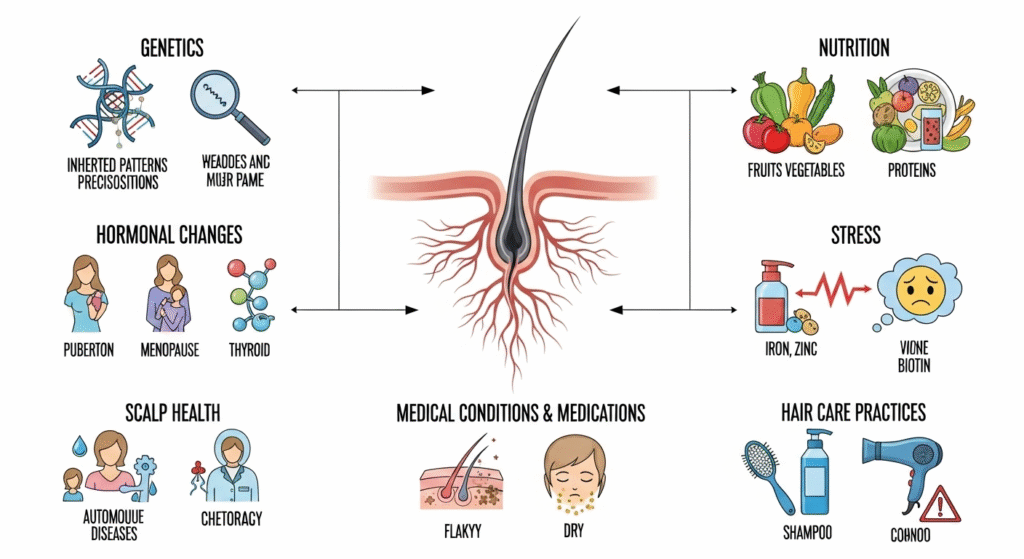
The density of your hair depends on several factors, such as genetics, nutrition, and hormonal changes.
Genetics and Family History
Your family history has a big influence on how much hair you have. If your parents had thick, voluminous hair, it’s likely that you’ll have a similar hair type. Conversely, if baldness or thinning runs in the family, you might experience it as well.
Nutrition and Hair Health
A diet rich in vitamins and minerals supports hair growth. Key nutrients include:
- Protein: Hair is made up of protein (keratin), so a protein-rich diet is essential.
- Iron, Zinc, and Vitamin D: These nutrients are vital for healthy hair follicles and growth.
- Biotin: Biotin supplements are known to help improve hair thickness and overall health.
Hormones and Hair Growth
Hormonal imbalances, such as those experienced during pregnancy, menopause, or with thyroid disorders, can significantly affect hair growth. These imbalances may lead to hair thinning or excessive shedding.
Hair Care and External Factors
- Heat styling, chemical treatments, and even exposure to sunlight can affect hair health, leading to hair breakage or thinning.
- Stress can also trigger excessive shedding or even temporary hair loss (telogen effluvium).
How Does Hair Growth and Density Change Over Time?
As you age, changes in your hair density are normal. Over time, your scalp may naturally lose hair density, which results in thinning hair.
Hair Growth Cycle: Anagen, Catagen, Telogen
The hair growth cycle is divided into three phases:
- Anagen: The active growth phase, which can last 2-6 years.
- Catagen: The transition phase, where hair stops growing and prepares to shed.
- Telogen: The resting phase. During this phase, the hair follicle rests, and hair falls out. This phase lasts for about 3 months.
Hair Thinning with Age
As we age, our hair follicles shrink, and the growth phase shortens. This leads to finer hair and less density. The thinning may be gradual, but eventually, it could become noticeable.
How Diet and Lifestyle Impact Hair Growth Over Time
Healthy eating and lifestyle choices can support your hair growth. A diet rich in fruits, vegetables, and lean proteins, along with stress management, can prevent premature thinning and encourage healthier hair.
Can You Increase the Number of Hairs on Your Head?
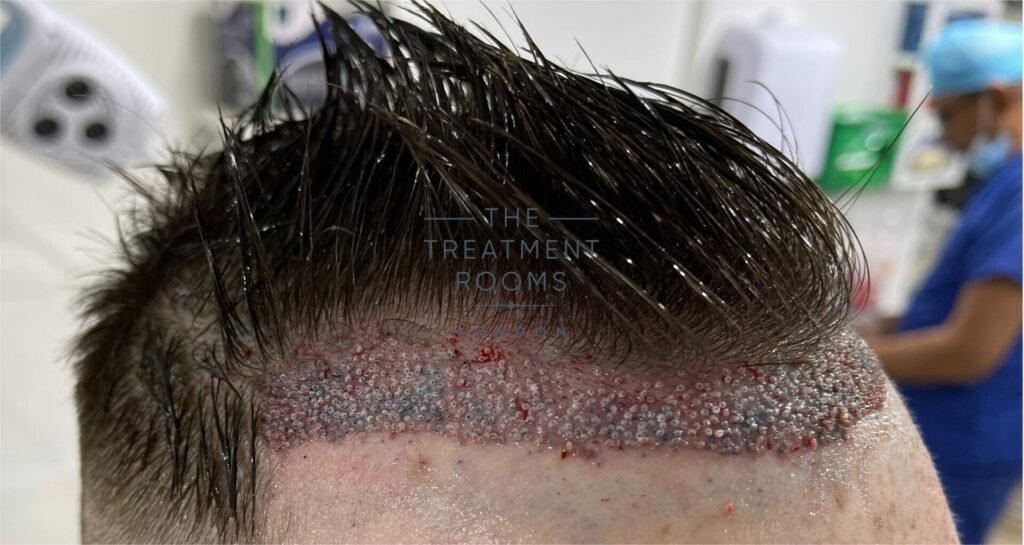
While you can’t increase the total number of hair follicles, there are treatments and lifestyle changes that can improve the density and health of your hair.
Hair Transplants and Restoration
- FUE (Follicular Unit Extraction) and FUT (Follicular Unit Transplant) are surgical procedures that restore hair to thinning areas. These procedures involve taking hair follicles from areas with thick hair and transplanting them to bald spots.
Non-Surgical Hair Restoration Methods
- Minoxidil (Rogaine) is an over-the-counter topical treatment that stimulates hair follicles and can help promote new hair growth.
- PRP (Platelet-Rich Plasma) therapy uses your own blood to promote hair regrowth by stimulating dormant hair follicles.
Healthy Lifestyle Choices for Better Hair Growth
- A balanced diet, regular exercise, and proper hair care can improve hair health and prevent excessive thinning.
- Avoid excessive heat or chemical treatments that could damage hair follicles.
Expert Opinions: The Science Behind Your Hair Count
The Impact of Scalp Health on Hair Density
Maintaining a healthy scalp is essential for optimal hair growth. Dermatologists recommend regular scalp massages and using mild shampoos to keep your scalp free from irritation or inflammation.
The Role of Hair Care Professionals in Hair Restoration
Experienced hair care specialists can help assess your hair loss condition and suggest personalized treatments to restore or maintain your hair density.
FAQs
How many hairs should a human head have on average?
On average, humans have between 100,000 to 150,000 hairs on their scalp.
Can I grow more hair on my head?
While you can’t increase the number of hair follicles, you can encourage hair growth through treatments like minoxidil, PRP therapy, or hair transplants.
Does hair color affect the number of hairs on a head?
Yes, people with blonde hair tend to have more follicles, while redheads typically have the fewest.
Does the number of hairs on my head affect hair loss?
People with fewer hair follicles may notice hair thinning more quickly, but this is also influenced by factors like genetics and lifestyle.
Conclusion: How Many Hairs on a Human Head?
On average, a human has between 100,000 to 150,000 hairs on their scalp. While the exact number varies based on hair color, genetics, and age, the density of your hair can change over time. However, with the right hair care practices, diet, and medical treatments, you can maintain and even restore hair density. By understanding the factors that influence your hair count, you can take proactive steps to keep your hair healthy for years to come.
Ready To Take Your Next Step:
Are you concerned about thinning hair or hair loss? Consult with our hair restoration specialist Dr. Uzma Irfan, an ISHRS-certified surgeon today to explore your options and receive a personalized treatment plan.

